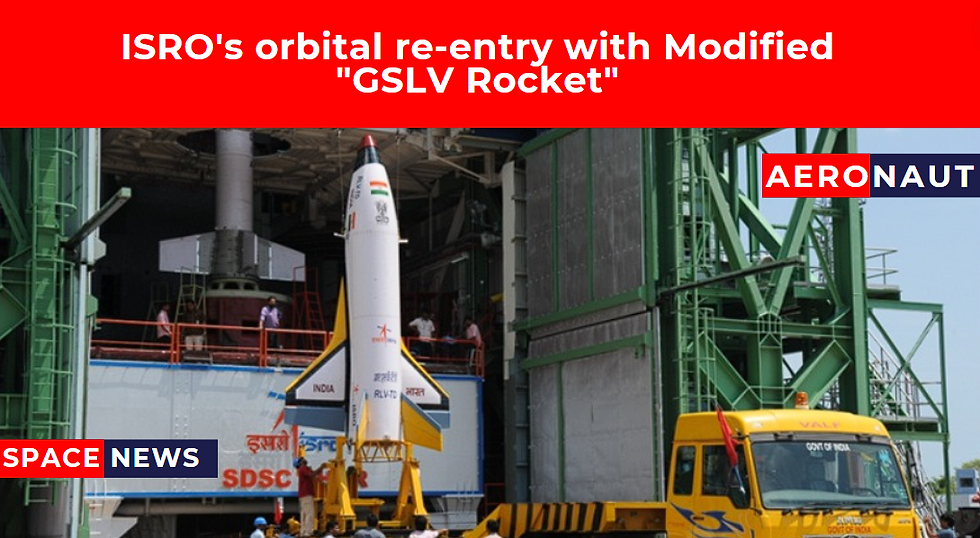Here is an interesting article on ISRO's upcoming orbital re-entry tests using a modified GSLV rocket:
## ISRO Gears Up for Orbital Re-entry Tests with Modified GSLV Rocket
The Indian Space Research Organisation (ISRO) is preparing to conduct a series of orbital re-entry tests using a modified version of its Geosynchronous Satellite Launch Vehicle (GSLV) rocket[1][4]. These tests are a critical step in developing the capability to safely return payloads from orbit, a key technology for future space missions.
ISRO plans to equip the modified GSLV with a re-entry module designed to withstand the intense heat and forces experienced during atmospheric re-entry[1]. The first test is expected to take place in the coming months, with the goal of validating the re-entry system and gathering data to further refine the technology[1].
In parallel, ISRO is also making progress on its Reusable Launch Vehicle (RLV) program. The agency recently conducted the RLV-LEX-02 landing experiment, which successfully demonstrated the autonomous landing capability of a winged RLV prototype called Pushpak[2]. The vehicle was lifted by an Indian Air Force Chinook helicopter to an altitude of 4.5 km, released 4 km from the runway, and landed precisely on the runway in a fully autonomous mode[2].
ISRO plans to scale up the difficulty level with the third and final RLV landing experiment (RLV-LEX-03) in the coming weeks[5]. In this mission, Pushpak will be released from a higher altitude of 500 meters to the side of the runway, requiring more complex maneuvers to approach and land on the runway[5].
Looking ahead, ISRO intends to use a modified GSLV to launch an unmanned Orbital Re-entry Vehicle (ORV) into a 400 km orbit around Earth[5]. The ORV will be 1.6 times the size of the Pushpak prototype and will carry out various experiments in orbit, including testing a thermal protection system for safe re-entry and a retractable landing gear[5].
The successful completion of these orbital re-entry tests would be a major milestone for ISRO, paving the way for more ambitious space exploration missions in the future. The agency's efforts to develop reusable launch vehicle technologies demonstrate its commitment to making space exploration more sustainable and cost-effective.
Citations:

Comments